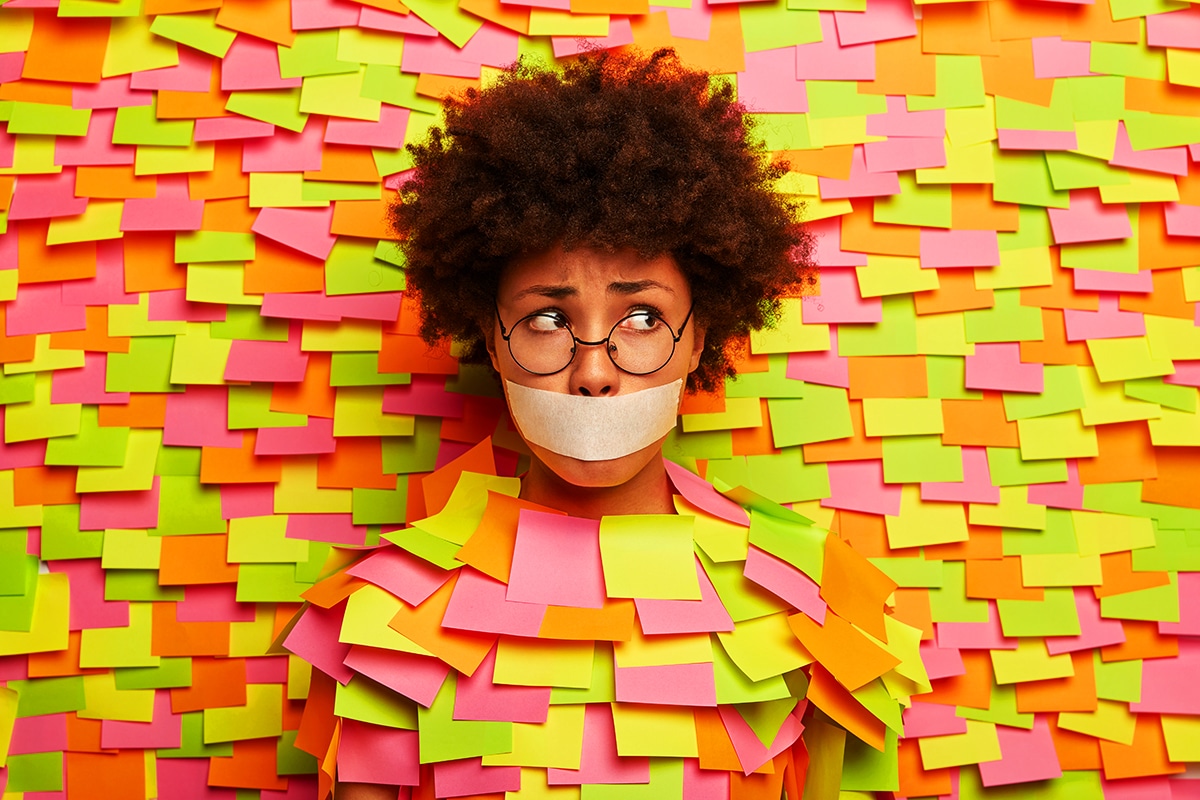Social media platforms have become an integral part of our daily lives. They have provided us with the opportunity to express ourselves freely and connect with people from all over the world. However, with the increasing popularity of these platforms, we have witnessed an unprecedented amount of censorship and control being exerted over the content we can post and view. Censorship on social media has gained a lot of attention lately, and for good reason. It is essential for us to understand the dangerous consequences of censorship on social media and why free expression is non-negotiable.
The Negative Impact of Social Media Censorship
The consequences of social media censorship have been felt by individuals, communities, and society as a whole. It has created an environment of fear, suppression, and uncertainty, which has left users feeling helpless and vulnerable. The negative effects of social media censorship can be categorized into three main areas:
1. Limitations on Individual Freedom of Expression
The fundamental principle of any democratic society is the right to free speech. However, social media censorship has led to a limitation of individuals’ freedom of expression. Many social media platforms have imposed strict rules and regulations on the type of content that can be posted on their platforms. This ranges from banning of nudity and violence to disallowing political discussions. The problem with such censorship is that it has led to the suppression of alternative viewpoints, creating an environment where only one narrative is allowed, and any differing opinions or beliefs are silenced.
2. Harassment and Intimidation
Social media platforms are often used by people identifying with different backgrounds, ethnicities, and opinions. However, the anonymity offered by such platforms has created an environment where individuals can harass and intimidate others with impunity. This has led to the creation of echo chambers, where the voices and opinions of those who get the most likes, clicks and views are heard. This, in turn, has created a toxic environment that makes it difficult for people to express themselves freely. Social media censorship has also been used to silence the voices of marginalized communities, further compounding the problem.
3. Misinformation and Propaganda
Social media platforms have also become a tool for the spread of misinformation and propaganda. The censorship of social media in the past has been driven by concerns around the spread of fake news and misinformation. However, censorship has no doubt exacerbated this issue. Due to limited access to certain information, propaganda material is easily able to reach people who are unable to critically assess them. In addition, censorship has led to the amplification of certain narratives, leading to a polarization of opinions and furthering conflicts.
The Importance of Free Expression
While censorship on social media is a complex issue, its negative consequences are clear. One of the biggest arguments against censorship is the importance of free expression. Free expression is an essential component of a democracy. It is the cornerstone upon which all the other rights and freedoms rest. Without the ability to express ourselves freely, our ability to participate effectively in democracy is severely limited.
1. Diversity of Opinion and Innovation
Diversity of opinion is fundamental to the healthy functioning of a democracy. With censorship, we lose the opportunity to hear diverse perspectives that help us challenge our own assumptions and beliefs and grow. Research has also indicated that diversity of opinion often leads to innovative ideas that can help solve complex problems. The lack of innovation can lead to stagnation and a lack of progress.
2. Social Progress and Change
Free expression also plays an essential role in social progress. Many of the social changes that we have witnessed over the years have been brought about due to people expressing themselves and speaking out against injustice and marginalization. Censorship puts a hold on social progress and can lead to the perpetuation of oppressive systems and conditions.
3. Accountability and Transparency
Free expression is also crucial when it comes to holding those in power accountable. When we lose the ability to critique, question, or criticize, we essentially lose the ability to hold people in positions of power accountable, leading to rampant corruption and abuse of power. Hence, it is essential to resist censorship and ensure that our voices are heard.
Advice on How to Resist Censorship on Social Media
Given the negative consequences censorship can have on democracy, social progress, and accountability, it is essential to find ways to resist censorship. Here are a few tips on resisting social media censorship:
1. Use Alternative Platforms
If a particular platform censors your posts, consider using alternative platforms that allow for more freedom of expression. For instance, platforms like Mastodon and Diaspora have gained popularity in recent years due to their commitment to free speech.
2. Build Alliances and Communities
Building alliances and communities that are committed to your cause is also a way to resist censorship. Such communities can help amplify your message and provide support in navigating censorship or pushing back against it.
3. Advocate for Change
Pushing social media platforms to change their policies regarding censorship is also a vital way to resist it. Advocating for change can involve signing petitions, joining campaigns, and reaching out to the platforms themselves.
Conclusion
In conclusion, censorship on social media can have dangerous consequences on our fundamental rights and freedoms. It is crucial that we understand the negative impact that censorship can have and resist it with all our might. The importance of free expression cannot be overstated, and it is vital for us to protect it at all costs. While resistance to censorship is difficult and complex, it is not impossible. Drawing on the advice outlined above, we can ensure that our voices are heard and that our social progress and accountability are protected.
